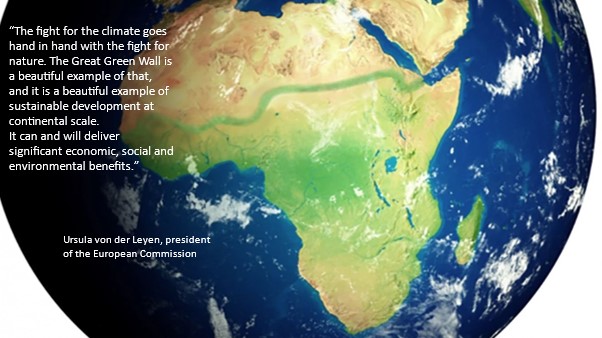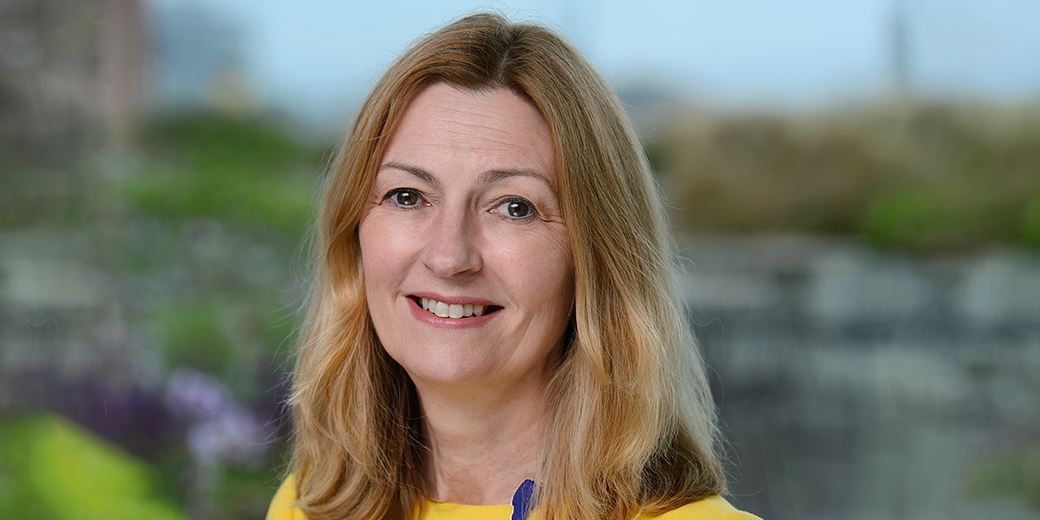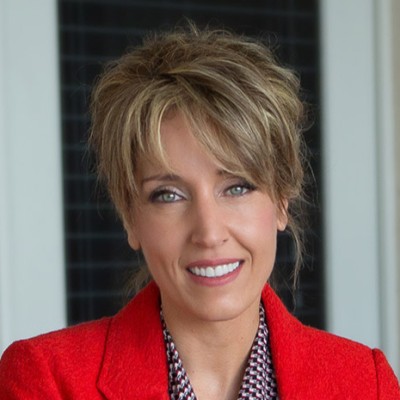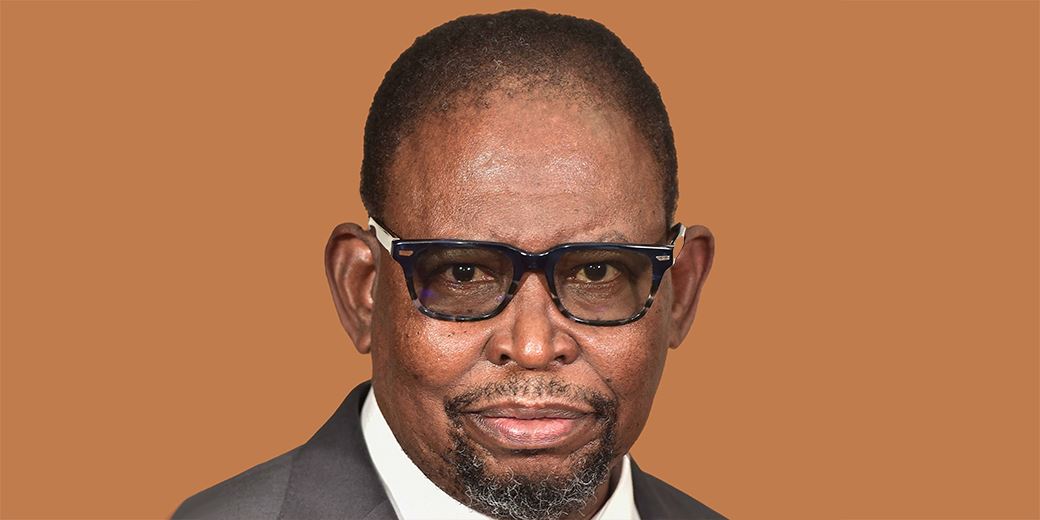Content begins here
Main page content
Click to collapse
Welcome to Mind Matters week of 1 November 2021

COP26: impact on financial services and other sectors
Aligning portfolios with climate goals: A new approach for financial institutions
Portfolio-alignment tools will help financial institutions chart more scientifically robust, realistic, and profitable climate strategies.
To reach the 1.5°C target, the world must cut present emissions levels by two-thirds over the course of the next decade.
This great transformation will only be possible if we replace, at scale, the global economy’s productive asset base with nonemissive technologies. Financial institutions understand that the capital needs for this historic undertaking are enormous. Success in the transition to a net-zero society depends on the ability to keep capital flowing to emissive industries engaged in decarbonizing activities while redirecting funding away from activities that do not support the 1.5°C ambition.
This is a must read article to understand that it is possible, but that the metrics must change. It will take you six minutes to read.
Good COP or bad COP? What seven ESG heads expect from the climate conference
Citywire gathered asset management ESG chiefs from the US and Europe to ask them what they expect from the UN climate conference in Glasgow.
LONDON: Will the COP26 climate conference that has just begun prove to be a damp squib or can world leaders agree meaningful change?
To gauge the mood, Citywire gathered six asset management ESG chiefs from the US and Europe and an ESG strategy head from Morningstar to discuss what they expect from the climate conference.
A refreshing sequence of short accounts from each of the participants. Four minutes
COP26: Brazil is burning, and closing the money tap won’t help
Failure to control Amazon deforestation and wildfires have angered international investors, yet Brazil is a leader in renewable energy and its funds industry is on board with ESG.
RIO DE JANEIRO: The Brazil attending COP26 in Glasgow will be different to previous editions of the UN’s climate conference. The standing government of president Jair Bolsonaro has been criticised domestically and internationally for his failure to act as a protector of Brazil’s biodiversity, allowing the destruction of the Amazon rainforest to accelerate.
Since Bolsonaro took power in 2019, rates of deforestation and fire have risen higher than at any time in the past decade.
A complex situation, have a three minute read and ask yourself what you would do to resolve the range of issues. This article shows us how important it is to create policies that account for interventions and curbing of emissions across all areas of the environment and the economy.
Investors pushing the drive to net zero
Thirty two percent of investors are happy for their money to be used to reduce carbon emissions, regardless of return. This was one of the findings of a recent survey undertaken and published by Ninety One.
It is evident that divesting from high emitters will create significant risks and inescapable consequences for emerging markets, starving them of capital. While nearly half (49%) of investors were able to see the negative impact divestment will have on the developing world, there is more conversation needed to raise awareness regarding allocation of capital to ensure an inclusive, global transition to net zero.
A three minute read.

Fidelity CEO: Central banks could deploy green QE
Speaking at COP26, Anne Richards focused on policy options central banks are yet to deploy and why it is important to bring wider society into the decarbonisation debate.
Richards (pictured) said central banks have a lot of power when it comes to balance sheets, and this is one way of shifting the relative cost of capital for green versus non-green activities.
A two minute read, but one which has already drawn an interesting comment on the global monetary system.
COP26: Net zero is like trying to run a marathon in one hour and 45 minutes
Reporting standards need to change to help investors understand emissions, says £300bn pension investor.
GLASGOW: Investors face a major challenge measuring the climate impact of their portfolios because companies are attempting the equivalent of running a marathon in one hour 45 minutes in their race to achieve net-zero emissions, according to panellists at a COP26 fringe event.
‘The pickle we’re in globally is because we didn’t start running when we had four hours to do it,’ said Paul Bodnar of BlackRock.
Bodnar said the challenge was made bigger by the fact that physical assets such as cars are hard to take out of the economy.
A short read but with very pertinent points made on how to change the measurement terminology and an effort to bring about change.
What COP26 means for South Africa
As a signatory to the Paris Agreement, South Africa recently published the update to its first National Determined Contribution (NDC) report in the lead-up to COP26. The report outlines the country’s climate change ambitions, which are based not only on science but also on equity, in light of our national circumstances. While we are committed to collaborating with the global community to reduce global temperatures in line with the Paris Agreement objectives, the report also underscores SA’s developmental challenges, such as low economic growth, high levels of unemployment, and the persistent challenges of poverty and inequality.
Read this four minute article by Thato Kola, economics and fixed income analyst, Matrix Fund Managers to grasp the high level impact on SA of going green.
The EU’s Green Deal: opportunities, threats and risks for South African agriculture
The European Union – among a host of other countries – is seeking to implement urgent policy measures to combat the effects of climate change. In its 2030 climate target plan, the EU aims to reduce greenhouse gas emissions by 55% from 1990 levels.
To that end, the EU has crafted the “Farm to Fork strategy”. Launched in 2020, it is a new approach that ensures that agriculture, fisheries, and the entire food system effectively contributes to achieving the target. The strategy is at the core of a broader initiative, the European Green Deal. It’s aim is to reduce the environmental and carbon footprint in the way food is produced and consumed.
A very interesting four minute read. With food security being one of South Africa's major concerns the "Farm to Fork strategy" could be both a hindrance and a help.
Africa’s ambitious reforestation megaproject gets a big boost at COP26
It’s an ambitious megaproject that aims to create the largest living structure on the planet. By 2030, the Great Green Wall aims to restore 100 million hectares of degraded land, sequester 250 million tonnes of carbon and create 10 million jobs in rural areas of Sahel. And it just got a big boost in Glasgow.
Read the article (two and a half minutes) and watch some of the short powerful videos embedded.

JSE announces commitment to supporting net zero by 2050
“The JSE recognises its role in guiding and supporting listed companies to acknowledge climate change as one of the most pressing sustainability risks. The urgent social needs of our country mean that we must holistically integrate environmental, social and governance (ESG) considerations into investment and financial decision making,” says JSE Group CEO, Dr Leila Fourie.
An important announcement (two minute read).
South Africa secures ‘watershed’ finance deal to reduce coal reliance
The countries, which announced their partnership with South Africa at the COP26 climate negotiations in Glasgow, Scotland, have pledged R131-billion over the next three to five years in the form of grants, concessional loans and investment and risk-sharing instruments, including mobilising private sector funding.
“The partnership that we have established today is a watershed moment not only for our own just transition, but for the world as a whole. It is proof that we can take ambitious climate action while increasing our energy security, creating jobs and harnessing new opportunities for investment, with support from developed economies,” President Cyril Ramaphosa said in a statement.
Alongside South Africa being the world’s 12th-worst emitting country due to companies such as Eskom and Sasol, the national utility was recently named the worst sulphur dioxide polluter in its category, surpassing China and the US combined.
Some very hard truths in the four minute article but also hope for change.
Industry news

Allianz Africa names Delphine Traoré as CEO
Allianz Africa has appointed Delphine Traoré as Allianz Africa Regional Chief Executive Officer (CEO), in addition to her current responsibilities. She succeeds Coenraad Vrolijk who is leaving Allianz Africa to pursue new opportunities outside of the Allianz group.
This is an announcement and a good one for women in short term insurance and the industry in general!

Gender diversity in fintech industry still long way off
The Fintech Diversity Radar, compiled by global fintech think tank findexable, reveals the majority of women (26%) in the sector hold the position of chief people officer or head of HR, followed by chief marketing officer and chief financial officer. Of all fintech CEOs globally, 5.6% are women, and less than 4% of women hold the title of chief innovation or technology officer.
Monica Eaton-Cardone, co-founder and COO of Chargebacks911, states: “This report is a welcome addition to the growing body of evidence that things need to change in the technology industry.
However, the four and a half minute article also states that the African continent has the highest percentage of female board members. Let's keep the momentum going.
Over R2bn in Group Risk claims paid out by Discovery
In a claims experience analysis, Discovery Group Risk has reported claim payouts to the value of R2.10 billion in the year to June 2021, which reflects a 42% increase compared to the previous year. The company offers group risk benefits that include life cover, global cover for the education of employees’ children, severe illness cover, lump-sum and monthly disability protection, and funeral cover.
“The 2021 financial year saw large increases in our Group Risk claims profile as well as large variances against expectations. This experience reinforces the devastating impact the pandemic has had on mortality and morbidity. Large shifts were observed within both the total number and value of claims paid with the biggest increases being observed within our death benefits,” Guy Chennells, Head of Products for Discovery Employee Benefits said.
This article of four and a half minutes will give you a full picture of the claims and if you want it, further reading. Note that the Group's Life Claims was released earlier this week.

National Treasury adjusts proposed Reg 28 infrastructure definition, restricts crypto assets
The National Treasury said that several parties that commented on the proposed amendments pointed out shortcomings in the proposed definition of infrastructure.
The National Treasury, in a statement, said that it received 39 submissions during the first round of public comments.
The parties that submitted comments included Allan Gray, the Association of Savings and Investment South Africa (Asisa), Batseta - the Council of Retirement Fund for South Africa, the JSE, Old Mutual, Riscura, the Southern African Venture Capital and the Private Equity Association, and Sygnia.
Read this three minute article to stay abreast of Reg 28 developments.
TymeBank hits milestones, reaches 4m customer mark
TymeBank, which is majority-owned by African Rainbow Capital, the empowerment investment company owned by Dr Patrice Motsepe, says the acceleration in customer sign-ups is due to its products and transparency in banking fees.
A two minute read. TymeBank is gaining traction!
Navigate stagflation risks by investing offshore
After a great start to the year international equity markets are coming under increasing pressure. As an unintended consequence of massive fiscal and monetary stimulus, and the rapid reopening of economies, global supply chains are currently struggling to keep up with a surge in demand. This is placing upward pressure on prices, and holding back the global economic recovery, just when pandemic relief measures are coming to an end. As a result, the euphoria of economies reopening has given way to concerns around stagflation (a situation in which inflation rates are high, and economic growth is low).
Following on from last week's articles on stagflation, read this one referencing what SA investors can do to limit their exposure to it.
COVID and supply chain issues or not
Lenovo defies chip shortage to post $512m profit
With headquarters in Beijing, Lenovo designs, develops, manufactures and sells PCs, tablet computers, smartphones, workstations, servers, electronic storage devices, IT management software and smart TVs.
Well, Lenovo is doing okay, then there must be other areas holding up the chain. Shipping perhaps? A two and a half minute read.
The coronavirus effect on global economic sentiment
Supply-chain disruptions now outweigh COVID-19 concerns as the biggest risks executives see to domestic and corporate growth.
When asked about threats to growth in their countries’ economies, executives now cite mounting fallout on the supply chain—which is also the most common risk to company growth—and inflation more often than the pandemic itself.
This is a big picture of how COVID has been replaced by supply - chain woes and inflation. A three minute read with good references.
Data map: Tracking COVID-19 waves in Africa
Since the outbreak of the COVID-19 pandemic, the number of positive cases across the world as well as in individual countries, has come in a series of rises, peaks and falls. Essentially, the overall pattern has been a series of waves.
Within the first two years since the outbreak, most countries had experienced three waves, marked by a huge second or third wave. Some countries recorded four regular waves, of varying peaks, and a few had a lingering second wave.
Waves happen because the COVID-19 virus remains active in people who are infected for a maximum of two weeks. After this time, the person is no longer infectious and will have developed some immunity.
I chose this article because it provides us with an interesting data map - it is not in real time, but it is up until the very recent past and it depicts the waves that are reported. The article is short; the fun is in trying out the parameters on the data-map.
Digitisation and technology in healthcare
Lockdown – serving newly digitised consumers
The Covid pandemic has changed the way we communicate, consume information and news and how we engage with organisations. But most importantly, it has brought the importance of quality healthcare into the spotlight.
Considering these factors, Bonitas Medical Fund is delighted to have been named the leader in the Medical Aid Industry category of the Ask Afrika Orange Index Awards® ahead of two shortlisted competitors, Discovery and Bestmed. The Orange Index Awards® is the most widely referenced customer experience measurement and benchmark in South Africa.
Well done Bonitas! An informative read of four minutes. Healthcare is moving more and more into the digital terrain.
Robotically-assisted knee surgeries limber up in WCape
The Western Cape’s Netcare Blaauwberg Hospital has introduced robotic-arm-assisted surgery for knee replacements as a permanent fixture at the facility.
This, after the precision technology option was used successfully to perform knee surgery on the first person earlier this year.
Note the increase in the use of robotics in healthcare, one of the top industries for advancement in this area. A three and a half minute read.
Biotech start-up wants to unlock Africa’s diverse genetic data
Biotech start-up BixBio is targeting early next year to commercially rollout its software platform that aims to address some of the shortcomings with current approaches to genetics testing, says co-founder and bioinformatician James Ross.
This, after the Cape Town-based start-up was selected as one of seven new genomics companies to join the third global funding cycle of Illumina Accelerator.
Ross tells ITWeb that part of the challenge of genetics testing is underrepresentation, meaning not enough diverse African genetic data is collected. In addition, most of the analysis that has been done is on European and Asian genetics data.
What an interesting article on representation of data for analysis. A four minute read.
About you
“Sometimes magic is just someone spending more time on something than anyone else might reasonably expect.”
— Raymond Joseph Teller
Often we begrudge the time it takes us to learn something or prepare for exams, particularly when the results come out. Put in the time and effort knowing that cumulatively you will achieve magic.
10 Tips for Healthy Eating During Exams
When you’re studying for finals, good nutrition often slides way down on the priority list. It’s easy to get into the habit of glugging coffee and gobbling take-out pizza, because you don’t want to waste time on food preparation. But, actually, good nutrition should be part of your study plan because it’s going to help you ace those tests. The better the fuel your brain gets, the better you’ll study. It’s a…well…no-brainer.
A five minute read with access to recipes suggested.
The Top 9 Brain Foods for Studying and Exams
When you’re a student trying to memorize and understand a lot of new information, it’s important to keep your health in top shape. Staying healthy can promote academic performance and help you reach your educational goals.
Although an overall healthy diet is most important for keeping your body and brain nourished and ready to take on difficult tasks, research shows that certain foods may be especially important for brain health and promoting mental performance.
The following foods have been linked to improved brain health and make excellent choices when you’re cramming for an exam.
A delightful reminder of what foods we should be eating for maximum brain function - a five minute read.
13 Brain Exercises to Help Keep You Mentally Sharp
The brain is involved in everything we do and, like any other part of the body, it needs to be cared for too.
Exercising the brain to improve memory, focus, or daily functionality is a top priority for many people, especially as they get older. That said, people of all ages can benefit from incorporating a few simple brain exercises into their daily life, which we’ll explore in more detail in this article.
Build some of these exercises into your study breaks, that way you will have a break and boost your brainpower! A five minute read.
And now for something completely different!
3 Common Phrases That Mean Completely Different Things to Men and Women
Think it doesn’t matter? Bless your heart!
Say the phrase “with all due respect” to a male colleague, and he may hear a completely different meaning than if you said it to a female one. This perplexing fact is just one finding from a fascinating survey of 1,000 Americans conducted by telecommunications provider TollFreeForwarding.com, which set out to learn how communication differences can cause misunderstandings between co-workers. (It also looked at differences between U.S. and U.K. colleagues.)
This is an interesting read because it does get us to think about the different ways we receive information depending on our gender. I am sure you can think of many other examples :)